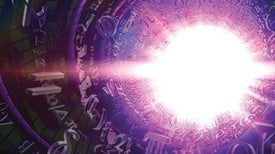 The Unsolvable Problem
The Unsolvable Problem
After a years-long intellectual journey, three mathematicians have discovered that a problem of central importance in physics is impossible to solve—and that means other big questions may be undecidable, too

No comments:
Post a Comment